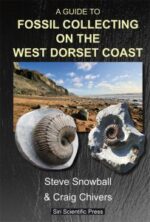Fossil Hunting along the Jurassic Coast is presented by Dr Colin Dawes, a well-known, fossil hunting guide in the world-famous palaeontological site of Lyme Regis.
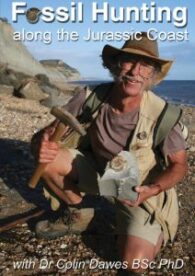

Fossil Hunting along the Jurassic Coast is presented by Dr Colin Dawes, a well-known, fossil hunting guide in the world-famous palaeontological site of Lyme Regis.

West Dorset is rightly famous for its fossils, but few people visit its wonderful, fossiliferous cliffs to look at them as landforms, rather than as an endless source of ammonites and belemnites. This guide does just that and, covers a series of itineraries in the context of landform type.
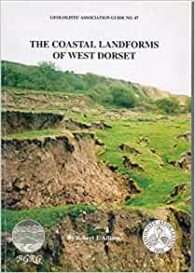
After having favourably reviewed the first two books in this three part series, I must admit I was very much looking forward to the publication of this last one. And, of course, I wasn’t disappointed. This is the third in a series of guides to safe and responsible fossil collecting along (this time), the East Dorset coast from the Chalk cliffs at Bat’s Head, across what are some of Dorset’s more remote coastal locations, to Hengistbury Head.
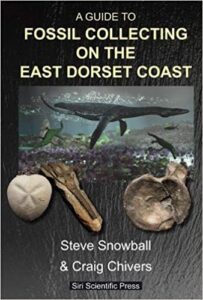
The is a second edition of Prof John Cope’s excellent geological guide to the Dorset coast for the Geologists’ Association. It is slightly shorter than the first edition, with some minor corrections and some of the figures revised, together with new photographs. It also now includes the huge quantity of data amassed over last few decades during the hydrocarbon exploration work in the county.
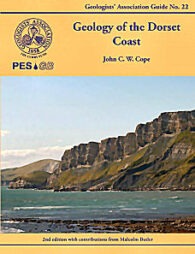
This is the second Geologists’ Association guide by Professor John Cope. The other is the second edition of his excellent Dorset guide. And, on the grounds that “if it ain’t broken, don’t mend it”, this guide to the south Devon coast follows the highly successful basic plan of that other guide, including the extensive use of colour photos and diagrams.
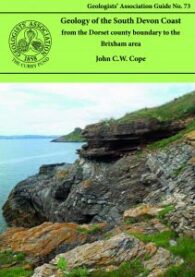
The Jurassic Coast Trust has certainly producing some good books. As is well known, in recognition of its wonderful geology, the coast between Orcombe Rocks in southeast Devon and Old Harry Rocks in south Dorset was granted World Heritage status in December 2001. In this respect, these two guides cover the western and the eastern thirds of this remarkable coastline.
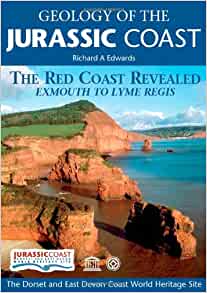
There are a lot of guide books to the Jurassic Coast Work Heritage Site and I have reviewed several on this site. This one is intended to provide a useful introduction to the general geology of the coastline, dealing with its formation, fossils and plate tectonics (among many other things). Specifically, the advice is provided in the context of walks – for both afternoon rambles and long distance hikes for the more committed.
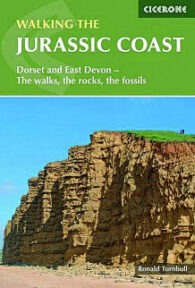
I don’t normally review BGS memoirs – they are excellent publications, but largely written for the professional or the seriously committed amateur geologist. (I have to admit to owning several, which cover my favourite fossil collecting areas of the UK.) However, this one is a ‘Special Memoir’ that I am quite willing to make an exception for.
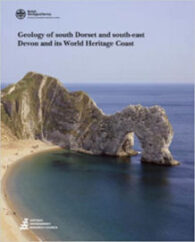
This book has the shape, form and feel of a holiday souvenir book – the sort you buy in tourist information shops to commemorate your visit, with pictures of the sites you didn’t have time to see. And, there is plenty of information for the curious visitor wanting to learn more about the earth science of the area. However, that isn’t the reason why I find it really interesting.
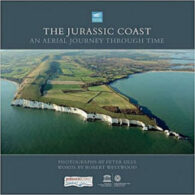
Just a couple of days before the Covid-19 lockdown, I was with friends at Tidmoor Point collecting wonderful pyrite ammonites from the Oxford Clay with this excellent guide to the South Dorset Coast. The South Dorset Coast runs from the West Fleet (of Chesil Beach fame) to and including the Isle of Portland.
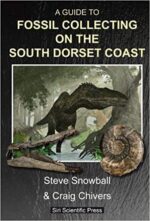
This newly published guide is another near-perfect fossil book from Siri Scientific Press, who are rapidly becoming my favourite publisher of esoteric palaeontology. This one is perhaps less arcane, as it deals with an area of Britain that has been extensively covered by various authors with varying degrees of success.
